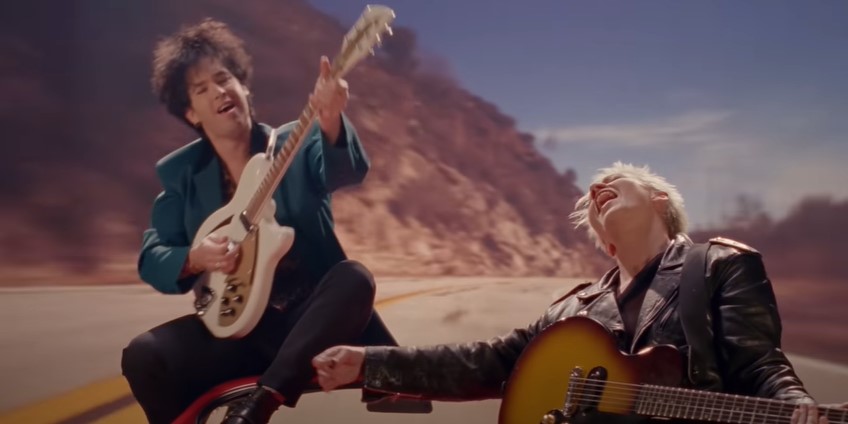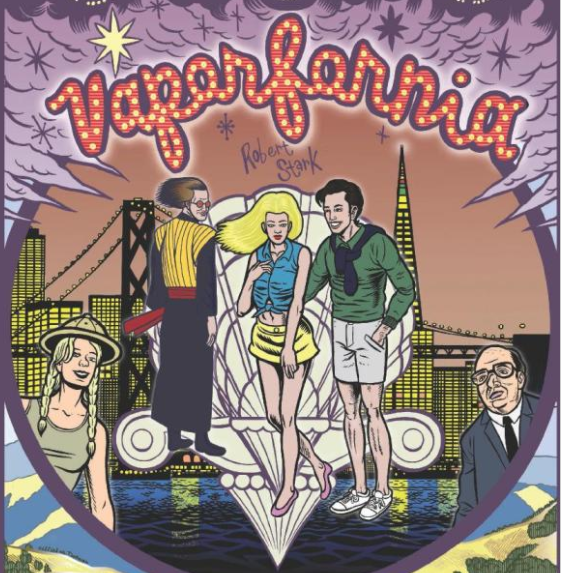Feeling Shiny and Happy at the Dawn of the Wide-Open Nineties
Retrieving quarters from a drawer
to do my laundry, I’ll sometimes notice a coin minted in 1992 or 1989 or 1990
and think to myself, “That was a good year” or “Things were still pretty good
back then.” The nineties as a whole, which coincided with my adolescence, are
actually one of my least favorite decades in some ways; but I retain an
affection for the early nineties and late eighties, which for me constitute a
micro-era unto itself, with an array of aesthetic flavors and feelings that
climax the eighties while also promising something new, yet to fully
materialize.
Most of my childhood memories of
moviegoing are clustered around these years, and there were great movies being
released every week back then: Die Hard (1988), Dirty Rotten Scoundrels
(1988), Parenthood (1989), Bill & Ted’s Excellent Adventure
(1989), Cyborg (1989), Dick Tracy (1990), Total Recall (1990),
Terminator 2: Judgment Day (1991), Batman Returns (1992) – the output
of new and cool distractions never seemed to stop. And there was always funny programming
on television, with shows like Married … with Children, Get a Life,
Saturday Night Live, and The Simpsons at their irreverent peak.
It’s strange now to look back and remember a time when the entertainment
industry didn’t feel like a contemptuous shit-cloud looming over the earth. The
shit-cloud was up there, even then, but hadn’t definitively revealed itself as
such, with popular culture still overwhelmingly catering to a normatively white
and comparatively healthy America. White action-adventure protagonists, rockers,
and country stars still ruled the roost in the popular domain, the emergence of
the likes of Spike Lee notwithstanding.
Plenty was awful during these years – there were the LA riots, for example – but to this day I associate the late eighties and early nineties, the period of the George H.W. Bush presidency, more or less, with upbeat songs like the Proclaimers’ “I’m Gonna Be (500 Miles)” (1988), REM’s “Shiny Happy People” (1991), Ace of Base’s “The Sign” (1993), and the B-52s’ “Love Shack” (1989) – the typical sort of background music that might be playing when my father took me out for dinner at Godfather’s Pizza circa Clinton’s election. Two songs in particular, the B-52s’ “Roam” (1989) and Tom Cochrane’s “Life Is a Highway” (1991), epitomize this era, both evoking wide-open spaces and limitless possibilities in the context of an optimism coinciding with the collapse of the Soviet system and the inevitability of a globalizing and putatively more peaceful world order. The B-52s’ name, appropriately enough, references the Boeing B-52 Stratofortress that symbolized American hard-power projection during the Cold War, just as the band’s music expresses American soft-power might through definition of hipness and homosexual contagion: “Kick through continents bustin’ boundaries,” as they put it.
As in Roxette’s “Joyride” music video (1991), Ridley Scott’s Thelma & Louise (1991), or Gregg Araki’s The Living End (1992), the existentially suggestive desert landscapes, the “wilderness” and “dirty and dusty trails” of “Roam” and “Life Is a Highway” complement the idea of complete freedom of will and movement, liberation from all obligations, and unbounded personal horizons. While these films acknowledge potentially dark outcomes and indicate the nihilistic tendency of the times – the desert not only in its liberty, but in its empty, negative aspect, as well – the “Roam” music video, by contrast, emphasizes frivolity and almost seems designed to have served as explicitly globalist propaganda, with B-52s band members superimposed against a motley assortment of beckoning places and peoples. Ironically, the video by today’s standards is racist, appropriating, exoticizing, and trivializing as it does the various cultures, beliefs, and rituals utilized as background to the B-52s’ campy, flamboyant shenanigans.
The early-nineties desert-highway-freedom concept finds a mid-nineties echo in Smashing Pumpkins’ upbeat but grungy “Today” (1993), the Stone Temple Pilots’ “Interstate Love Song” (1994), or in Aerosmith’s “Crazy” (1994), depicting a sexy coming-of-age road escapade; but the decade on the whole tended more in the direction of the grimy wasteland mental breakdown and shrieking of psycho-harpy Alanis Morisette’s “You Oughta Know” (1995) and the money-and-fake-tits-accumulating egoism of Kid Rock’s catchy but ersatz “Cowboy” (1999). The nineties remained comparatively carefree, but sleazy, uninspiring, and lacking the spirit and enthusiasm that characterized the end of the Cold War. Sometimes life in the 2020s can feel more like a dingy alley or sewer than a majestic desert highway, the B-52s’ peppy cosmopolitan triumphalism long since relegated to some airplane graveyard. What temptation could there possibly be to roam the world and to experience foreign cultures when every disgusting foreigner in the world seems to be bent on becoming “American” and moving in next door? But, who knows? Maybe a sun is rising somewhere in the East, making other people feel shiny and happy.
Rainer Chlodwig von K.
Rainer is the author of Drugs, Jungles, and Jingoism.




In 1996 rock music dropped off a cliff. The Screaming Trees album that year seemed to be the last hard rock album from the grunge movement. I remember sitting in a motel room a year later looking out the window at grey skies while a Spice Girls video on MTV showed them walking through rain-soaked alleys all over the world. Damn, I could do that, and do it all the time. The Spice Girls could never play or appreciate a gnarly guitar solo, though.
ReplyDeleteI also had the sense that it was circa 1996 that I started to feel out of tune with my cultural surroundings. Pro wrestling was going through an amusing period then with the Monday night wars, but pop music was all turning into lazy rubbish with the occasional exception of a grimy techno hit, CGI was making movies ugly, etc. It was also around then I saw my first peer with weird-colored hair at school. The "SJW" hadn't been invented yet, but they were already in pre-production.
Delete